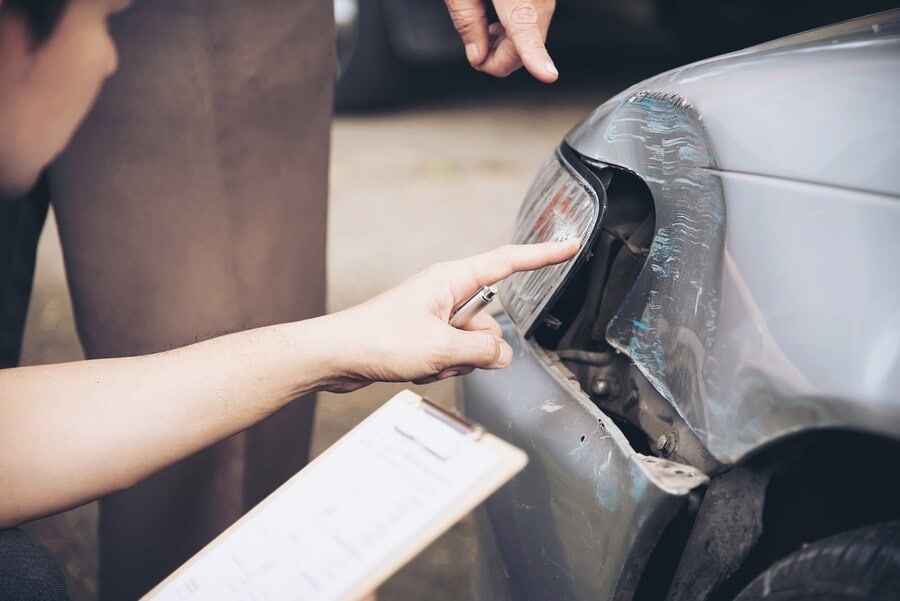
Getting into a car accident is a stressful experience, and when it happens in a no-fault state, it can add another layer of complexity to an already challenging situation. If you’re wondering, “Does a no-fault accident go on your record?” you’re not alone. In this comprehensive guide, we’ll delve into the intricacies of no-fault car insurance, explore how claims work in these states, and address the crucial question of whether a no-fault accident affects your driving record.
What Is a No-Fault Accident?
A no-fault accident refers to a situation where each party involved in the accident, regardless of who was responsible for the collision, turns to their own insurance company to cover the costs of medical bills and related expenses. No-fault insurance systems aim to streamline the claims process and minimize legal disputes after an accident.
What Is No-Fault Car Insurance?
No-fault car insurance is a system designed to streamline the process of handling car accident claims. In states that adhere to the no-fault system, each party involved in an accident turns to their own insurance company to cover medical expenses and other financial losses, regardless of who is an at-fault driver. This system aims to expedite the claims process and reduce the number of lawsuits related to minor accidents.
How Does a Claim Work in a No-Fault State?
In a no-fault state, when you’re involved in a car accident, you typically turn to your insurance company for compensation, regardless of who caused the accident. This process is initiated through Personal Injury Protection (PIP) coverage, which is mandatory in no-fault states. PIP covers medical expenses, lost wages, and other related costs.
This streamlined approach can be beneficial in terms of a quicker claims process and reduced legal battles. However, it raises the question: Does a no-fault accident go on your record?
Does a No-Fault Accident Go on Your Record?
One of the key advantages of the no-fault system is that minor car accidents shouldn’t significantly impact your driving record. Since fault is not typically determined in these cases, there’s no need for the incident to be recorded on your driving history.
However, it’s essential to note that the specifics can vary from state to state. While the no-fault system generally aims to keep minor accidents off your record, serious or costly incidents may still be subject to review and impact your driving history.
How Long Will a No-Fault Accident Stay on My Record?
The duration for which a no-fault accident stays on your record depends on various factors, including the severity of the accident and the policies of your state’s Department of Motor Vehicles (DMV). In many cases, if the accident is minor and doesn’t involve significant injuries or damages, it may not appear on your record.
However, the incident might stay on your record for a certain period in case of severe accidents, especially those resulting in legal actions or large insurance claims. Typically, this duration can range from three to five years, but it’s crucial to check the specific regulations in your state.
Which States Impose the Mandatory No-Fault System?
No-fault car insurance is mandatory in certain states, and understanding whether your state follows this system is crucial for navigating the aftermath of a car accident. As of now, twelve states have embraced the no-fault system. These states include:
Florida
Michigan
New York
Kentucky
New Jersey
Pennsylvania
Minnesota
Hawaii
Massachusetts
Kansas
Utah
North Dakota
If you reside in a no-fault state, it’s essential to familiarize yourself with the local laws and regulations to ensure you know how to handle a car accident and its potential impact on your driving record.
Will Your Premium Increase After a PIP Claim?
One common concern after a no-fault accident is the potential increase in insurance premiums. Fortunately, the no-fault system is designed to prevent this from happening. Since each party turns to its own insurance company for compensation, the fault is not typically assigned, and as a result, filing a PIP claim is less likely to lead to a premium hike.
However, it’s essential to communicate openly with your insurance provider and understand the specific terms of your policy. While a no-fault accident may not raise your premiums, other factors, such as multiple claims or a history of accidents, can still influence your car insurance rates.
What Should You Do If You Get Into a Car Accident in a No-Fault State?
If you find yourself in a car accident in a no-fault state, there are specific steps you should take to protect yourself and ensure a smooth claims process:
Check for Injuries: Prioritize the health and safety of everyone involved. Call for medical assistance if needed.
Exchange Information: Exchange contact and insurance information with the other parties involved in the accident.
Document the Scene: Take photos of the accident scene, including vehicle damage, license plates, and any relevant road signs.
Contact the Police: Even in no-fault states, it’s advisable to report the accident to the police. A police report can be valuable when filing a claim with your insurance company.
Notify Your Insurance Company: Report the accident to your insurance company immediately. Provide them with all the necessary details and cooperate fully during the claims process.
Seek Medical Attention: Even if you don’t believe your injuries are severe, seeking medical attention is essential. Some injuries may not manifest immediately, and having a medical record can be crucial for your claim.
Understand Your Coverage: Familiarize yourself with the details of your insurance coverage, especially your PIP coverage, to ensure you know what expenses are eligible for reimbursement.
How to Protect Your Driving Record: Tips for No-Fault Accidents
Maintaining an unblemished driving history is crucial, particularly following a car accident where fault is not assigned. Follow these proactive tips to safeguard your record:
Drive Safely: Prioritize safe and responsible driving to prevent accidents and maintain a clean record.
Understand Your Insurance: Familiarize yourself with your car insurance policy to make informed decisions during a no-fault accident.
Regularly Review Your Record: Check your driving record periodically to identify and address inaccuracies promptly.
Take Defensive Driving Courses: Consider enrolling in defensive driving courses to enhance skills and offset points on your record.
Avoid Moving Violations: Traffic violations can impact your record even in no-fault states, so adhere to traffic laws.
Cooperate During Claims: Fully cooperate with the claims process to facilitate a smooth resolution with your car insurance company.
Seek Legal Guidance: Consult a personal injury attorney to protect your rights and navigate legal aspects in complex situations.
How an Attorney Can Assist After a No-Fault Accident
When facing the aftermath of a no-fault car accident, enlisting the help of a seasoned attorney can provide essential support. Here’s a brief overview of the ways an attorney can aid you in navigating the legal intricacies and safeguarding your interests:
Legal Expertise: An attorney specializing in personal injury and no-fault accidents deeply understands state-specific laws, clarifying how these regulations apply to your case.
Claim Assessment: Evaluating the true value of your claim, particularly in cases involving severe injuries or disputed liability, is a complex task. An attorney can assess the worth of your claim, factoring in various damages like medical expenses and lost wages.
Negotiation Skills: Dealing with insurance companies can be daunting. An attorney is your advocate, negotiating with insurers to ensure you receive fair compensation and shielding you from tactics that may undermine your claim.
Addressing Disputed Liability: If fault determination becomes necessary, an attorney can help gather evidence and build a strong case to establish liability, particularly in accidents involving severe injuries.
Securing Full Compensation: Insurance settlements may fall short of your actual losses. An attorney can assess settlement offers and work to secure full and equitable compensation for your injuries and damages.
Resolving Insurance Disputes: In cases of disputes with insurance companies, an attorney intervenes to advocate for your rights, ensuring a fair and just claims process.

Contact BLG for a Legal help
In a no-fault state, the impact of a car accident on your driving record depends on various factors. While the no-fault system is designed to keep minor incidents off your record, it’s essential to be aware of the specific regulations in your state and take appropriate steps to protect yourself after an accident.
Remember, each state may have nuances regarding the no-fault system, so staying informed and seeking legal advice if needed is crucial. By understanding the ins and outs of the no-fault system, you can confidently navigate the aftermath of a car accident and ensure that your driving record remains as unblemished as possible. Drive safely, stay informed, and be prepared for any unexpected twists on the road.
When it comes to understanding the nuances of no-fault accidents and safeguarding your driving record, trust the expertise of BLG. Our experienced team is here to guide you through the complexities of the legal landscape, ensuring you make informed decisions after a car accident.
Contact us today for a free consultation.
FAQs
How long does an accident stay on your insurance?
The duration for which an accident stays on your insurance record can vary depending on the insurance company and the laws of your state. Generally, accidents can impact your insurance rates for three to five years. However, the exact time frame can differ, and some minor accidents might not affect your rates as much.
How is fault determined in a car accident?
Fault in a car accident is determined through an investigation by insurance companies, law enforcement, and sometimes, legal proceedings. Factors considered include witness statements, traffic laws, police reports, and evidence from the accident scene. Insurance adjusters assess the information to allocate fault percentages, which may impact liability for damages.
What happens if the person at fault in an accident has no insurance?
If the at-fault party in an accident has no insurance, it can create challenges for the other party seeking compensation. In such cases, if available, the injured party may have to rely on their insurance coverage, such as uninsured motorist coverage. Legal options, like filing a lawsuit against the at-fault party, may also be considered, but recovering damages can be more challenging when the responsible party is uninsured.





